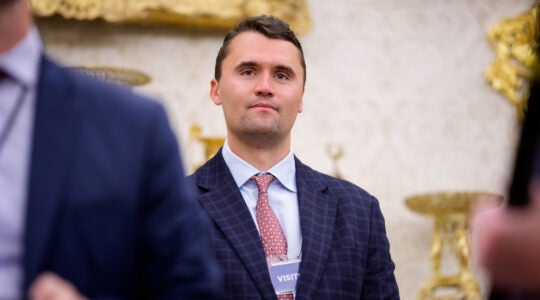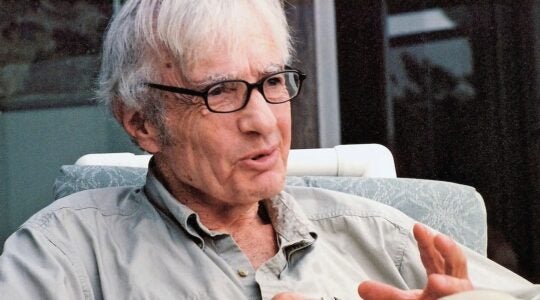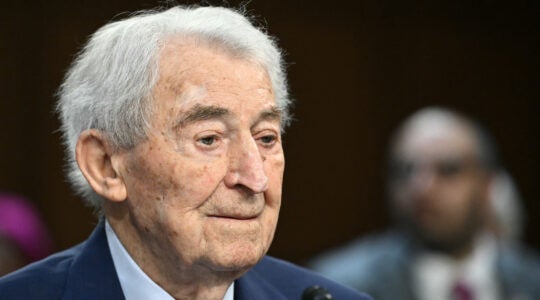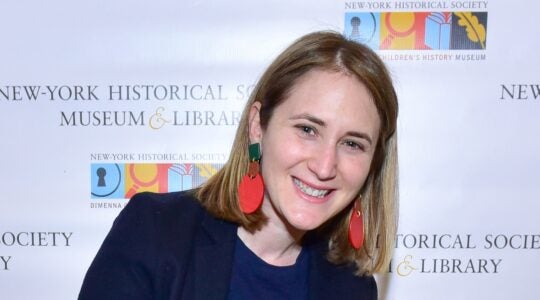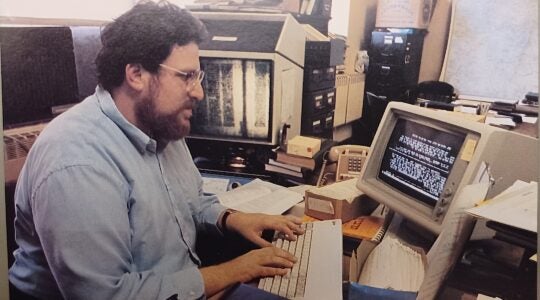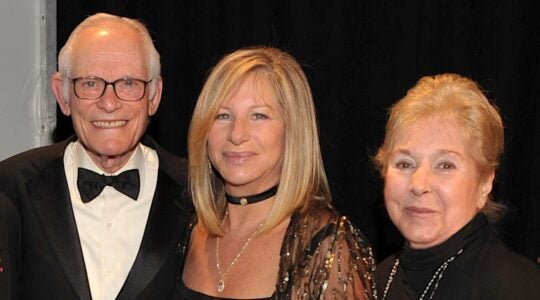This article is also available as a weekly newsletter, “Life Stories,” where we remember those who made an outsize impact in the Jewish world — or just left their community a better or more interesting place. Subscribe here to get “Life Stories” in your inbox every Tuesday.
Yakir Shmuel Tatelbaum, 21, an Israeli-American who died fighting in Gaza
An Israeli-American born and raised in Michigan was killed in battle while fighting in the northern Gaza Strip on Friday, the IDF announced Saturday evening.
Sergeant First-Class (Res.) Yakir Shmuel Tatelbaum, 21, was from Ma’ale Adumim. His parents, Marcy (Eisenberg) and Yehuda, attended Farber Hebrew Day School-Yeshivat Akiva in Southfield, Michigan and moved with their children to Israel in 2007. His aunt, Abby Eisenberg, is a Jewish educator who offers classes for adults on Zoom and in person in NYC.
After high school, Yakir attended a pre-military academy, or mechina, at Kibbutz Sufa, on the Gaza border, where he and other volunteers studied Torah and helped rebuild a once-struggling community. Just two weeks ago, Yakir eulogized one of his teachers, Senior Staff Sergeant Major (res.) Elon Waiss, who was killed in a tank explosion in Gaza. “How I loved joking with you at school, on trips, after classes, trying to annoy you as much as possible,” Yakir said of Waiss. “A teacher loved by everyone.”
Yakir’s funeral was held on Sunday at Jerusalem’s Har Herzl military cemetery, on what would have been his 22nd birthday.
“Yakir died knowing that he was doing something … perfect and safe, without much fear,” his brother, Meir, told Ynet. “He believed in the goal, in victory, in the fight, in returning the captives and in the absolute victory. This is what he breathed for and probably for that he was also killed. He said he wanted to travel after the war, restore the south, donate a kidney. That’s what he wanted. To donate organs — that’s his wish.”
Audrey Flack, 93, a painter of of larger-than-life canvases
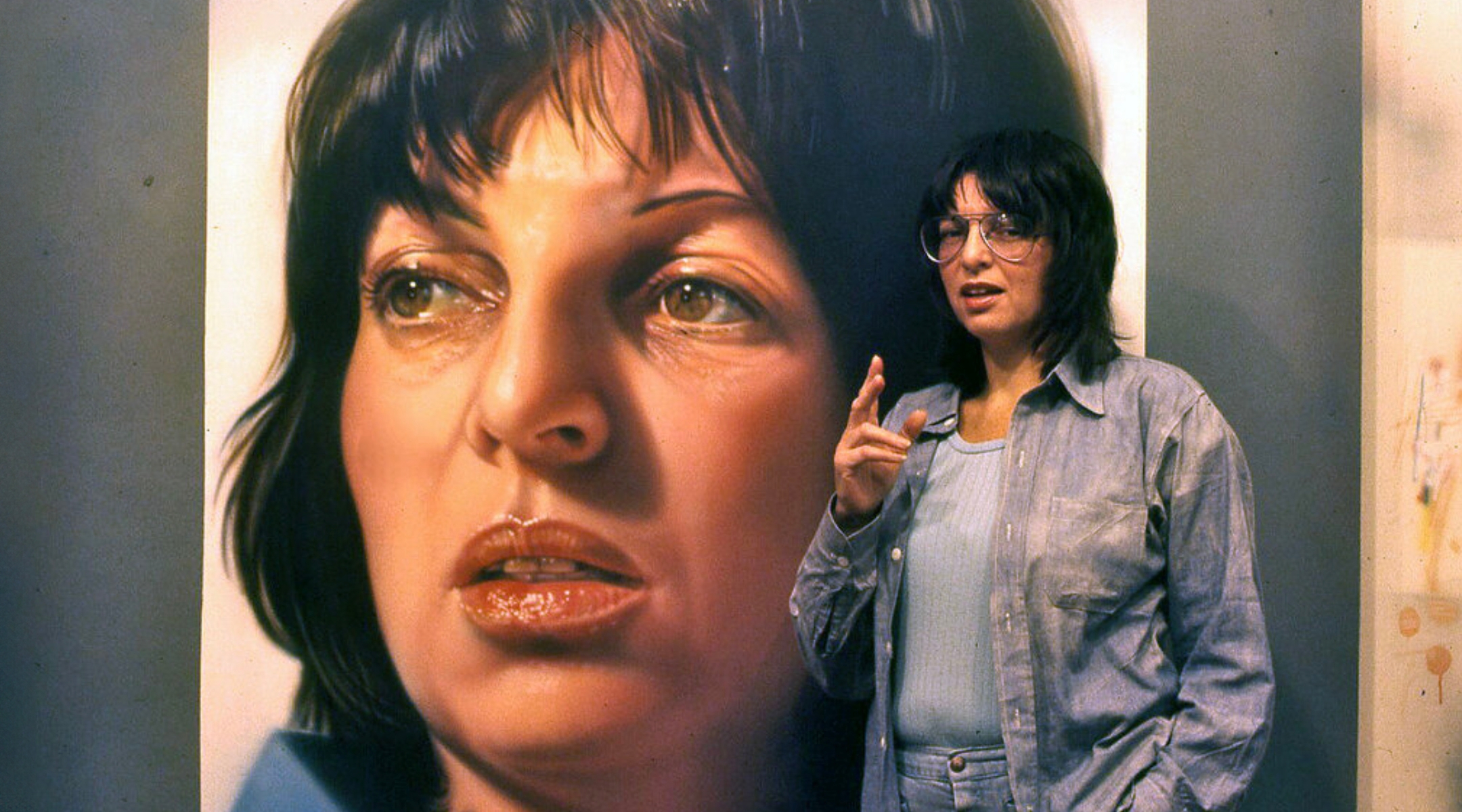
Audrey Flack poses with her “Self portrait I, 1974.” (Wikipedia)
Painter and sculptor Audrey Flack, whose large photorealist paintings explored personal, sociopolitical and feminist issues, died June 28 at 93.
Born in New York to parents who immigrated from Galicia, Flack studied art at Cooper Union in a then-gritty Greenwich Village. “This was a world far removed from the family-owned Jewish bakeries, grocery shops and kosher butchers of Washington Heights,” she wrote in her 2024 memoir.
She later drew on her Jewish background in works like “Matzah Meal Still Life” (c. 1960), an homage to Jewish home life, and the cover portrait of Anwar Sadat when he was named Time’s “man of the year” in 1978 for initiating peace with Israel.
Paul Kane, 77, a fundraiser who helped bring in billions for UJA-Federation
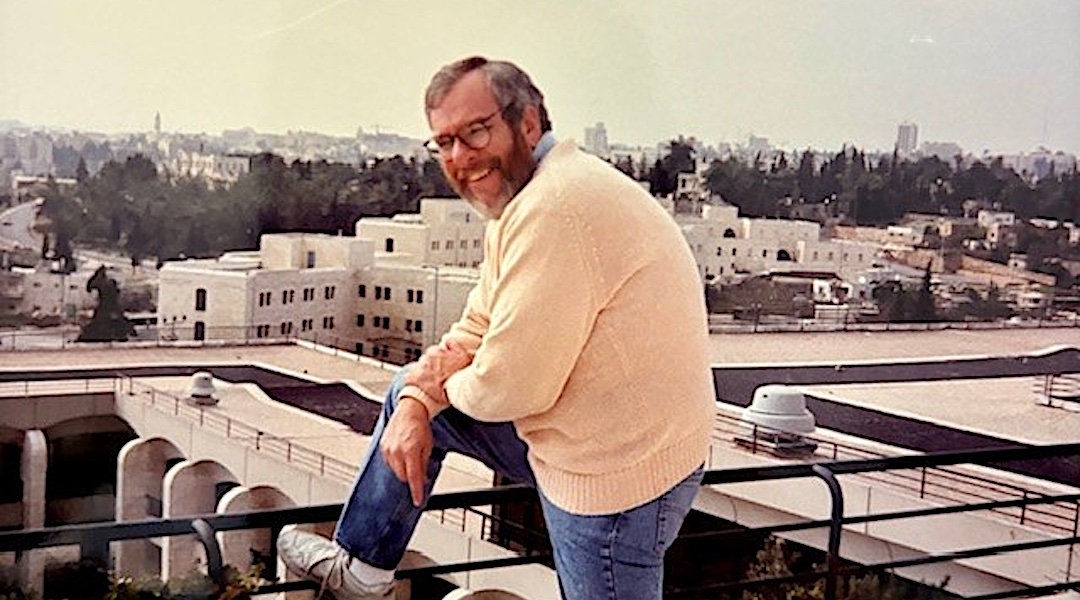
As senior vice president of UJA-Federation of New York, Paul Kane raised record funds for Israel and the local Jewish community. (Courtesy UJA-Federation)
In more than two decades at UJA-Federation of New York, most recently as its senior vice president, Paul Kane helped the umbrella philanthropy raise over $3 billion. He also played a key role in shepherding the organization through the 2008 financial crisis, and mentored hundreds of fundraising professionals throughout the Jewish world.
Kane had “an abiding love for Israel, and up until his death was working on a range of projects to ensure the health and safety of all Israelis,” UJA-Federation wrote in a statement.
The Boston native died July 5. He was 77.
Stanley Moss, 99, a poet steeped in spirituality and skepticism
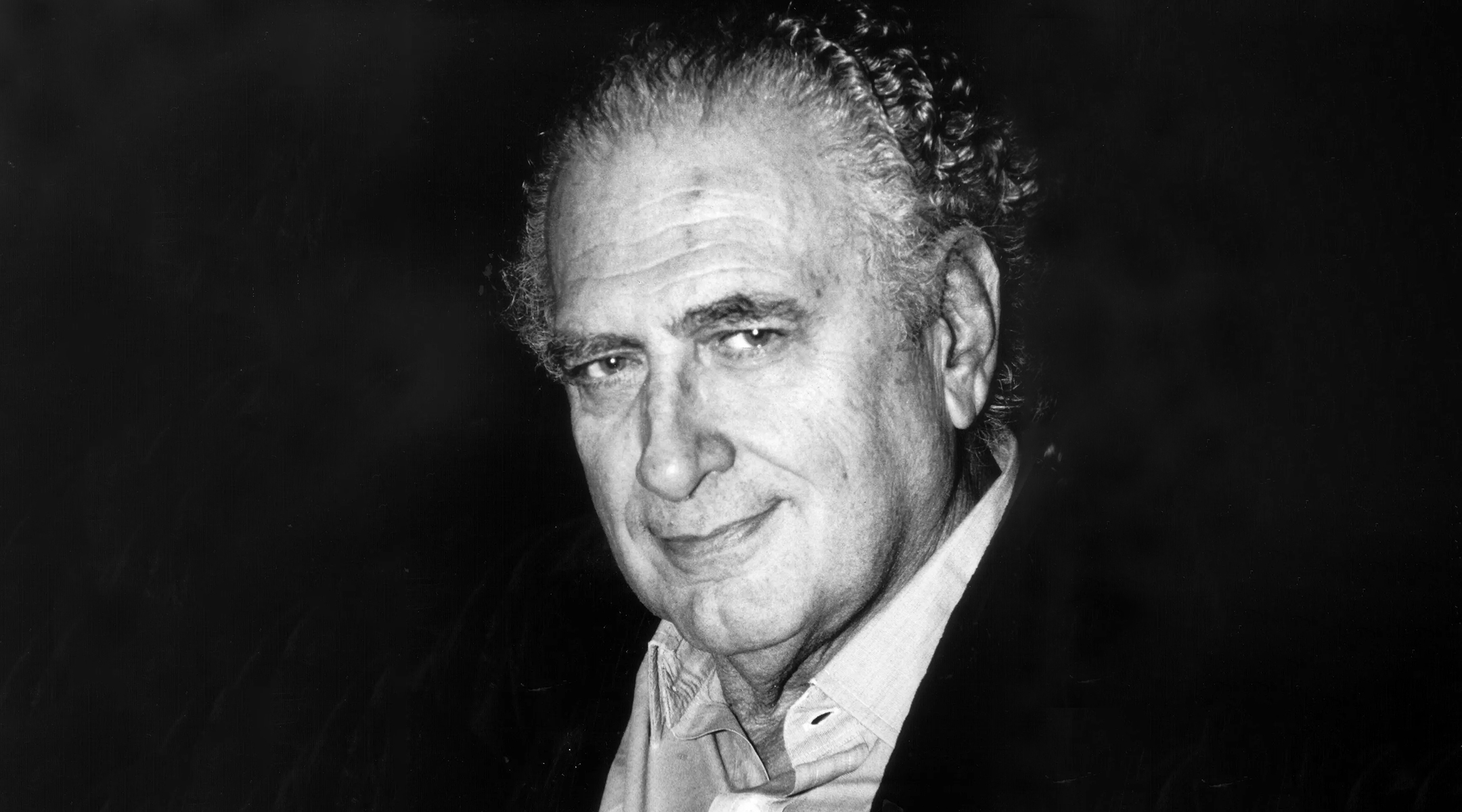
After serving in World War II, poet Stanley Moss taught English in Barcelona and Rome, where he became familiar with the religious and mythical figures that appeared in his work. (Erwin Schenkelbach, via Seven Stories Press)
At one of the occasional seders he attended as a child growing up in Queens, New York, Stanley Moss declared, “Horseradish rhymes with Kaddish.” It may have been the start of his career as a poet whose work was marked by an ongoing argument with “God, myth, skepticism [and] the unreviseable facts of death on an individual and large scale.”
He wrote frequently about the Holocaust and Jewish themes (his 2003 poem “You and I” is based on a Yom Kippur hymn, Ki Anu Amekha). His 2016 collection, “Almost Complete Poems,” won the National Jewish Book Award for poetry.
In addition to founding the nonprofit Sheep Meadow Press, Moss was a private art dealer specializing in Italian and Spanish Old Masters.
He died on Friday in Rockland County, New York. He was 99.
Emil Knopf, 91, survivor and Bay Area volunteer nonpareil
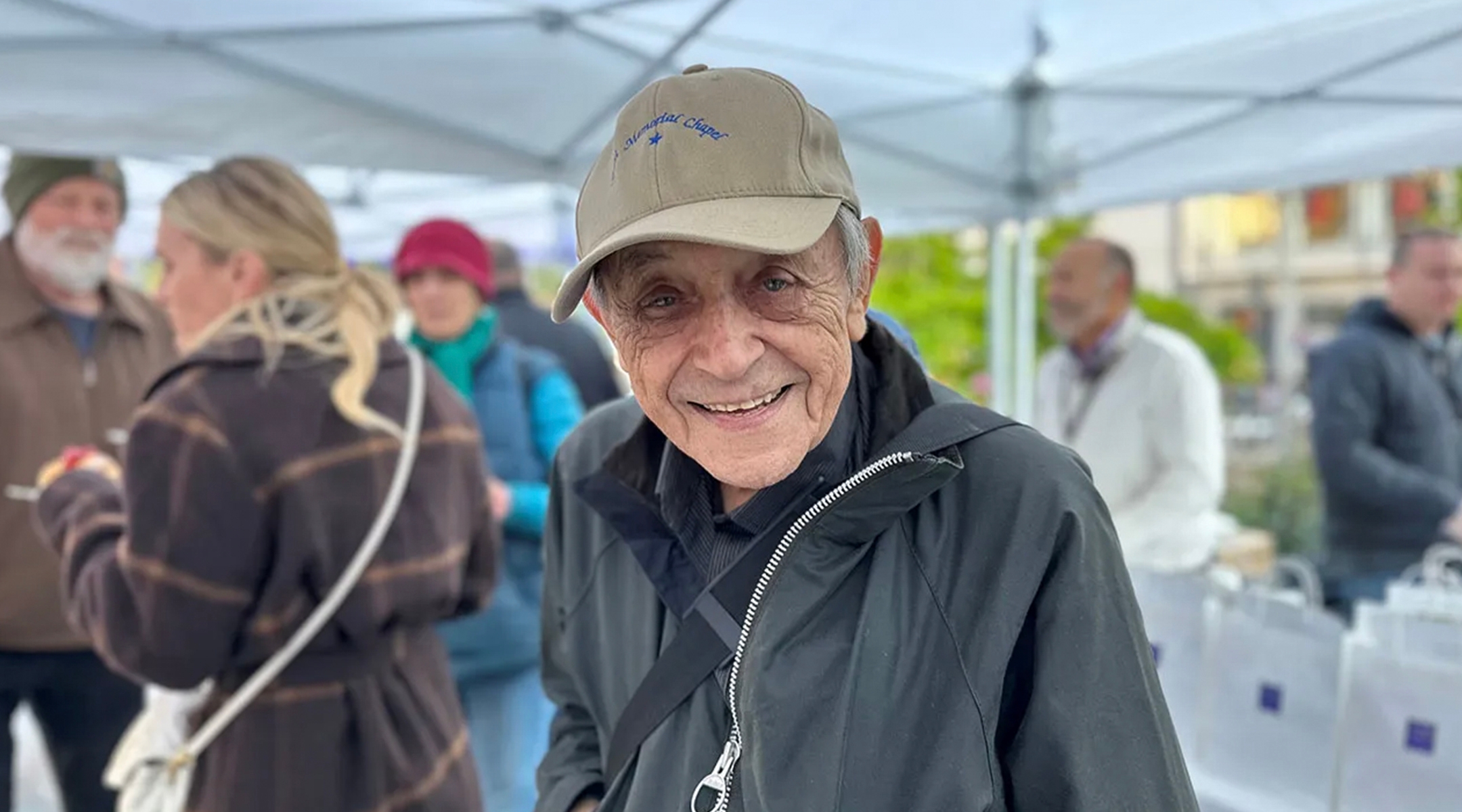
Emil Knopf at Sinai Memorial Chapel’s Hanukkah outreach booth in San Francisco’s Union Square, 2022. (Via. J.)
Emil Knopf hid as a child in the Polish forests before reaching Bolivia and, ultimately, San Francisco, where he rose to become a senior executive at Levi Strauss & Co.
Knopf was also one of the most connected Bay Area Jewish community volunteers during a 50-year span: He served multiple terms as president of his B’nai B’rith lodge and of his synagogue, Congregation Adath Israel, and gave his time and money to the S.F.-based Jewish Community Federation and Endowment, American Heart Association, Sinai Memorial Chapel and the Contemporary Jewish Museum. When the local Jewish newspaper J. asked him what drew him to volunteer, Knopf replied simply, “I like to stay involved.”
He died in San Francisco on July 1 of natural causes at the age of 91.
Robert Towne, 89, Oscar-winning screenwriter for “Chinatown”
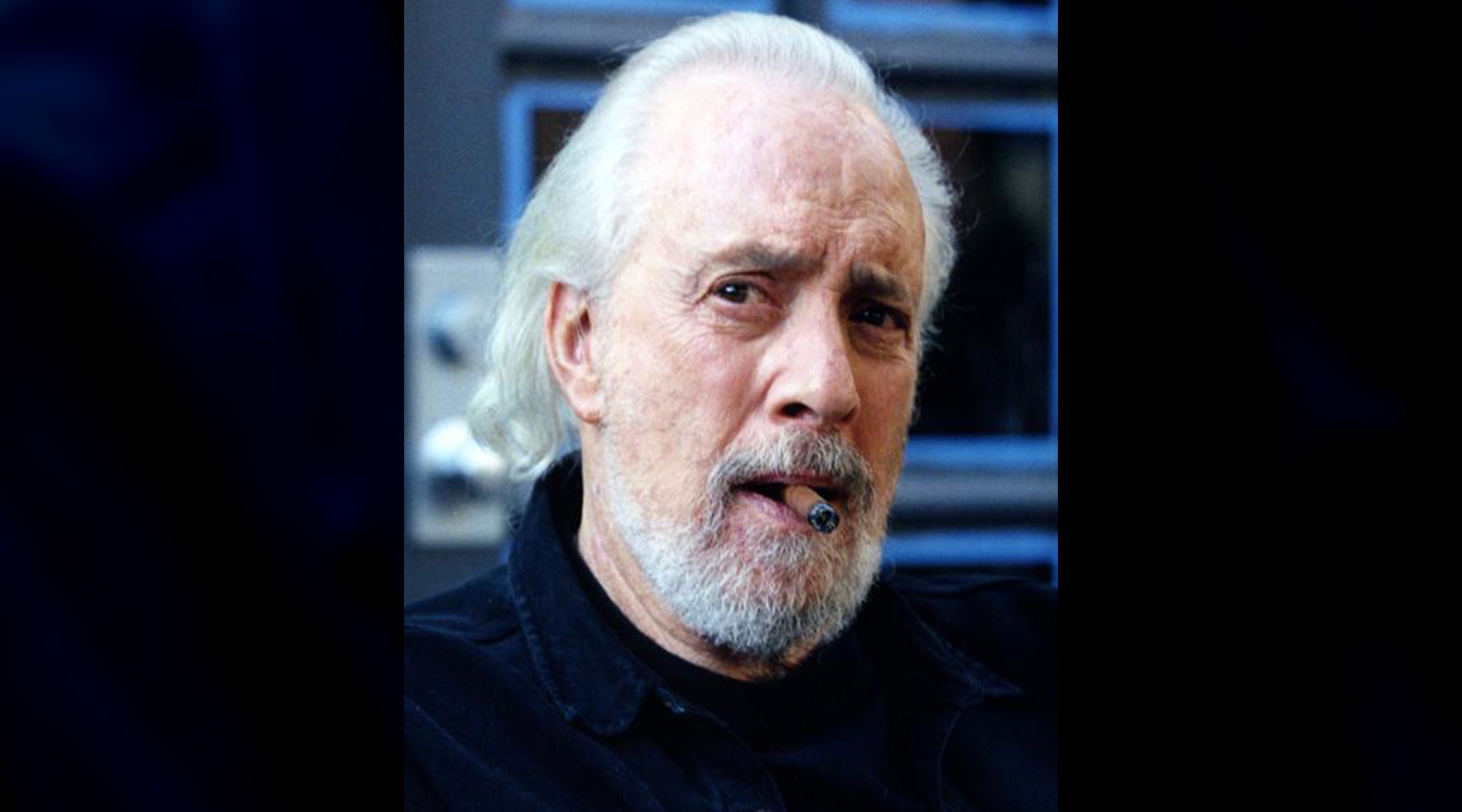
Screenwriter Robert Towne was profiled in Sarah Morris’ 2006 documentary “Robert Towne.” (Wikipedia)
In 1971, screenwriter Robert Towne declined a $175,000 offer to adapt “The Great Gatsby,” instead opting to take $25,000 for an original screenplay on which he was working. That script became “Chinatown,” director Roman Polanski’s classic film noir, winning Towne the 1975 Oscar for best original screenplay.
He also earned nominations for “The Last Detail” and “Shampoo,” and was an uncredited script doctor on “Bonnie and Clyde” and “The Godfather.” Towne, born Robert Schwartz, was raised in San Pedro, California, a blue-collar town that, he once wrote, had a “sprinkling” of Jews.
Towne’s films defined the “New Hollywood” of the 1970s, which, he wrote, found audiences by “dramatizing the disparity between the Establishment’s view of the country and what many Americans were beginning to take to be the awful truth: Vietnam, Watergate, perceptions of hideous racial inequality.”
He died Monday at his home in L.A. He was 89.
JTA has documented Jewish history in real-time for over a century. Keep our journalism strong by joining us in supporting independent, award-winning reporting.

